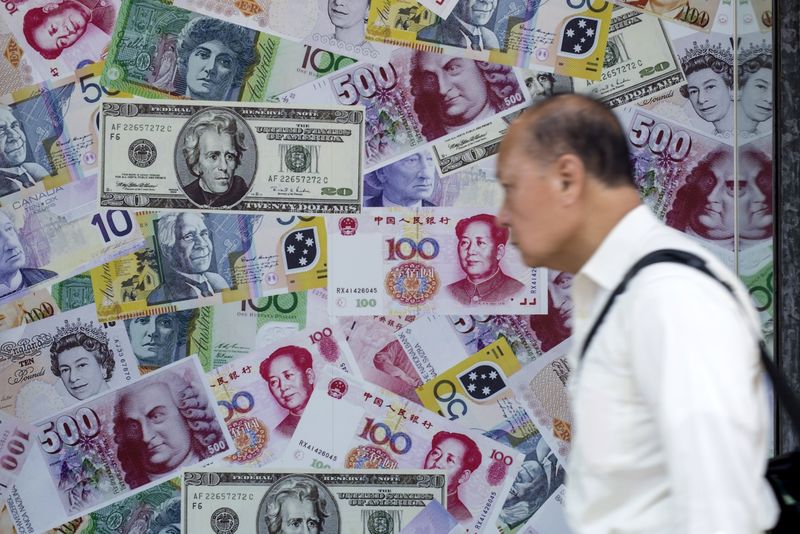* S.Korean won leads losses on growth target cut
* Chinese yuan hit by Premier Li Keqiang's dovish comments
* Thai baht firms the most
(Adds text, updates prices)
By Aditya Soni
July 3 (Reuters) - Most emerging Asian currencies on
Wednesday were shackled by underlying doubts about whether the
United States and China could iron out their differences and
strike a lasting deal to end their year-long trade war.
Surveys this week showing faltering global manufacturing
activity underlined the anxiety about the broadening fallout of
the Sino-U.S. dispute, one reason why trade-dependent South
Korea earlier in the day cut its growth and export targets.
That sent the Korean won KRW=KFTC , the worst performing
emerging Asian unit this year, skidding to a near two-week low.
Investors had initially cheered a trade truce agreed
between U.S. President Donald Trump and his Chinese counterpart
Xi Jinping at the G20 summit in Japan over the weekend.
Yet, markets were wary about the prospects of a lasting
deal, after the last major round of Sino-U.S. trade talks
collapsed in May.
"The prolonged trade war is now on ice after both sides
agreed to a truce, but the market has seen this before and based
on the aggressive demands from the United States, it could
unravel once again," Alfonso Esparza, senior market analyst, at
OANDA said in a client note.
The Chinese yuan CNY=CFXS weakened to a one-week low,
while the Taiwan dollar TWD=TP slipped 0.1%.
The yuan was under pressure after Chinese Premier Li
Keqiang's dovish remarks on Tuesday raised speculation of
further policy easing to help a slowing economy. The Thai baht THB=TH firmed 0.4% and led gains.
The baht has vastly outperformed its peers this year, up
6.5%, after also topping its emerging Asian peers in 2018. The
Bank of Thailand has expressed concern over the strength of the
currency, saying it may not be in line with economic
fundamentals. The extended gains in the baht suggest that flows remain
favourable, Stephen Innes, managing partner at Vanguard Markets
Pte Ltd said.
"Keep in mind that Thailand has been upping their gold
reserves, so this too is adding to the currency haven appeal as
gold fever grips the Asian market yet again," he added.
Currencies of major oil importers, the Indian rupee INR=IN
and Philippine peso PHP= edged higher, helped by a 4% dive in
Brent crude overnight. O/R
The following table shows rates for Asian currencies against
the dollar at 0459 GMT.
CURRENCIES VS U.S. DOLLAR
Currency Latest bid Previous day Pct Move
Japan yen 107.630 107.88 +0.23
Sing dlr 1.355 1.3559 +0.04
Taiwan dlr 31.097 31.052 -0.14
Korean won 1171.300 1166 -0.45
Baht 30.560 30.69 +0.43
Peso 51.140 51.17 +0.06
Rupiah 14137.000 14135 -0.01
Rupee 68.868 68.93 +0.08
Ringgit 4.139 4.137 -0.05
Yuan 6.885 6.8738 -0.16
Change so far in 2019
Currency Latest bid End 2018 Pct Move
Japan yen 107.630 109.56 +1.79
Sing dlr 1.355 1.3627 +0.55
Taiwan dlr 31.097 30.733 -1.17
Korean won 1171.300 1115.70 -4.75
Baht 30.560 32.55 +6.51
Peso 51.140 52.47 +2.60
Rupiah 14137.000 14375 +1.68
Rupee 68.868 69.77 +1.31
Ringgit 4.139 4.1300 -0.22
Yuan 6.885 6.8730 -0.17
